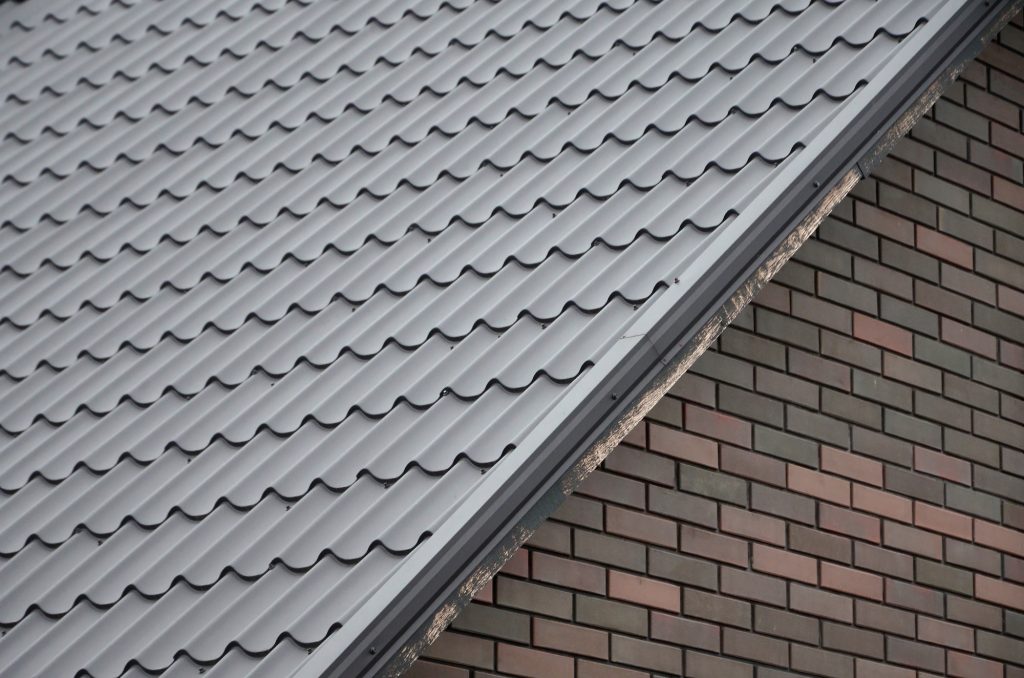When choosing a roof for your home, there are many options to consider. Each material has unique advantages and disadvantages, from asphalt shingles to tile roofs. One roofing material that stands out for its energy efficiency is metal roofing. In this article, we will explore the benefits of metal roofing for energy efficiency and how it can save money on energy bills while helping the environment.
Metal roofing refers to roofing made from metal materials such as steel, aluminium, copper, and zinc. This type of roofing is known for its durability, longevity, and energy efficiency.

Types of Metal Roofing
There are several metal roofing materials to choose from, each with unique properties.
- Steel is the most commonly used metal roofing material due to its affordability and versatility. It is also resistant to fire, insects, and rot.
- Aluminum is another popular choice for metal roofing. It is lightweight, corrosion-resistant, and reflective, making it an excellent energy-efficient option.
- Copper is a more expensive option and one of the most durable and long-lasting roofing materials. It is also naturally resistant to fire, insects, and rot.
- Zinc is a high-end option known for its unique appearance and longevity. It is also environmentally friendly, as it is 100% recyclable.
Energy Efficiency Benefits of Metal Roofing
Metal roofing has several energy efficiency benefits that make it an excellent choice for homeowners looking to save money on their energy bills.
- Reflects Sunlight: One of the most significant benefits of metal roofing is its ability to reflect sunlight, keeping your home cooler in the summer. This can reduce the strain on your air conditioning system, leading to lower energy bills.
- Insulation Properties: Metal roofing also has insulation properties that help keep your home warm in the winter. This can reduce the strain on your heating system, leading to lower energy bills.
- Durable and Long-lasting: Metal roofing is known for its durability and longevity, which can also contribute to its energy efficiency. Unlike asphalt shingles, which must be replaced every 20-30 years, metal roofing can last 50 years or more. This means you won’t have to worry about replacing your roof as often, which can save you money in the long run.
How Metal Roofing Can Save Energy
There are several ways that metal roofing can save energy and help lower your energy bills.
- Lower Energy Bills: By reflecting sunlight and providing insulation, metal roofing can help keep your home cooler in the summer and warmer in the winter. This can reduce the strain on your HVAC system and lead to lower energy bills.
- Improved HVAC Efficiency: The reflective properties of metal roofing can also help improve the efficiency of your HVAC system. This means your HVAC system won’t have to work as hard to maintain a comfortable temperature in your home, which can lead to lower energy bills.
- Increased Home Value: Not only can metal roofing help you save money on your energy bills, but it can also increase the value of your home. Metal roofing is a popular choice for homeowners looking for a durable and energy-efficient roof, making your home more attractive to potential buyers.
Comparison to Other Roofing Materials
While metal roofing has many advantages for energy efficiency, it’s essential to compare it to other roofing materials to see how it stacks up.
- Asphalt Shingles: Asphalt shingles are a popular roofing choice but not as energy-efficient as metal roofing. Asphalt shingles absorb heat, which can warm your home in the summer and increase the strain on your air conditioning system.
- Tile Roofs: Tile roofs are also not as energy-efficient as metal roofing. While tile roofs provide insulation, they are heavy and can increase the strain on your home’s structure.
- Wood Shingles: Wood shingles are not as energy-efficient as metal roofing. They absorb moisture, which can lead to rot and other structural issues. They also require more maintenance than metal roofing.
Environmental Benefits of Metal Roofing
In addition to its energy efficiency benefits, metal roofing has several environmental benefits.
- Recyclable: Metal roofing is 100% recyclable, which makes it a more environmentally friendly option than other roofing materials.
- Reduced Carbon Footprint: The reflective properties of metal roofing can also help reduce your carbon footprint by reducing the strain on your HVAC system. This means you will use less energy, which is better for the environment.
Maintenance and Cost
While metal roofing has many advantages for energy efficiency, it’s essential to consider the maintenance requirements and cost.
- Maintenance Requirements: Metal roofing requires minimal maintenance, which can save you money in the long run. You should have your metal roof inspected every few years to ensure it is in good condition, but otherwise, it should last for 50 years or more.
- Cost Comparison: Metal roofing is a more expensive option than asphalt shingles but also a more durable and energy-efficient option. In the long run, metal roofing can save you money on your energy bills and reduce the need for frequent roof replacements.
Choosing the Right Metal Roofing System
Several factors must be considered when choosing a metal roofing system, including style, colour, and installation method.
- Style: There are several metal roofing styles, including standing seam, corrugated, and shingled. Each type has its unique look, so it’s essential to choose a style that complements the look of your home.
- Colour: Metal roofing is available in various colours, so you can choose a colour that matches your home’s exterior. Selecting a colour that will reflect sunlight and keep your home cooler in the summer is also essential.
- Installation Method: Several methods exist for installing metal roofing, including screws and clips. Choosing an installation method that will provide a secure and long-lasting hold for your roofing is essential.
The Future of Metal Roofing
The future of metal roofing looks bright, with many innovations in energy efficiency and increased popularity among homeowners.
- Innovations in Energy Efficiency: Metal roofing manufacturers are always looking for ways to improve the energy efficiency of their products. This means that metal roofing maybe even more energy-efficient in the future, helping homeowners save even more money on their energy bills.
- Increased Popularity: As more and more homeowners learn about the benefits of metal roofing for energy efficiency, the popularity of metal roofing is expected to continue to grow. This means that metal roofing may become even more widely available and affordable.
Conclusion
In conclusion, metal roofing is an excellent choice for homeowners looking to improve the energy efficiency of their homes. With its reflective properties, insulation properties, and durability, metal roofing can help lower energy bills, increase home value, and reduce environmental strain. Whether building a new home or replacing your current roof, metal roofing is a great option.
FAQs
- What is Metal Roofing? Metal roofing refers to roofing made from metal materials such as steel, aluminium, copper, and zinc.
- What are the Energy Efficiency Benefits of Metal Roofing? Metal roofing has several energy efficiency benefits, including its ability to reflect sunlight, provide insulation, and last 50 years or more.
- How Can Metal Roofing Save Energy? Metal roofing can save energy by reducing the strain on your HVAC system, leading to lower energy bills.
- How Does Metal Roofing Compare to Other Roofing Materials? Metal roofing is more energy-efficient than asphalt shingles, tile roofs, and wood shingles. It is also more durable and environmentally friendly.
- What are the Environmental Benefits of Metal Roofing? Metal roofing has several environmental benefits, including being 100% recyclable and reducing the carbon footprint by reducing the strain on HVAC systems.
